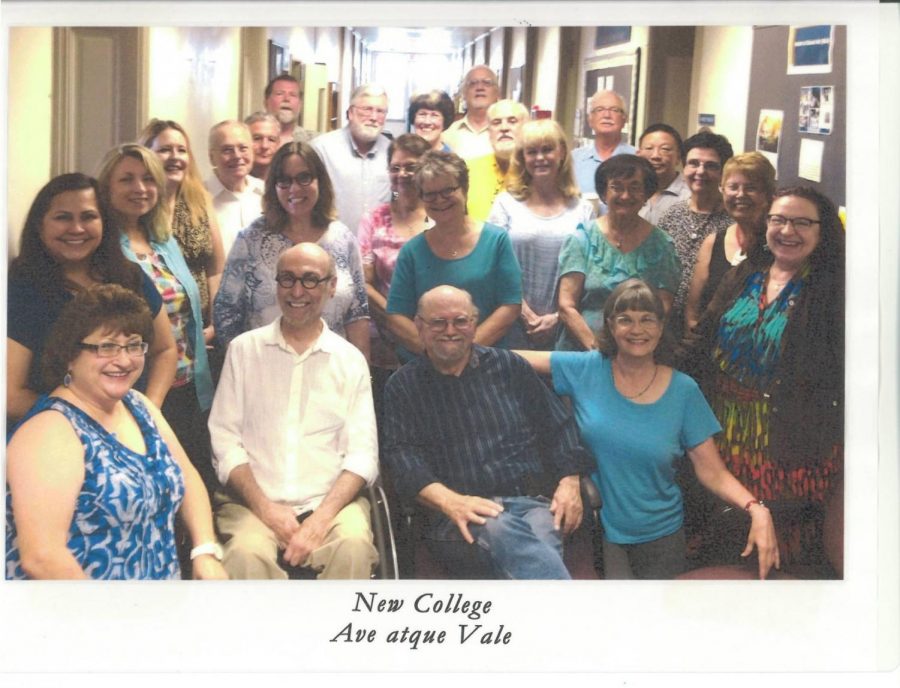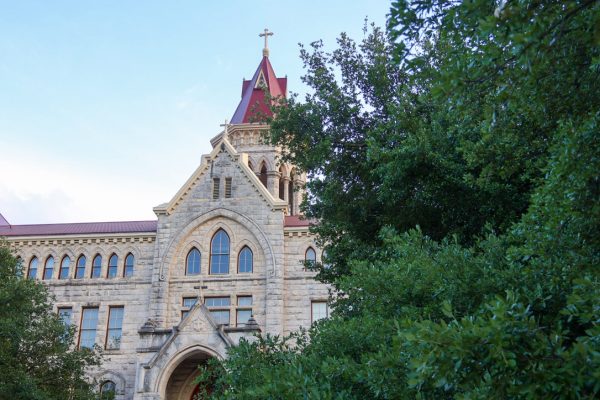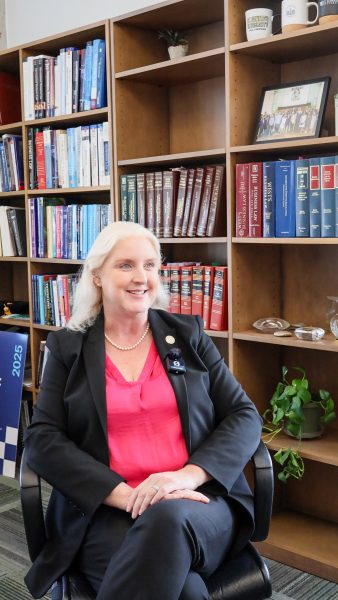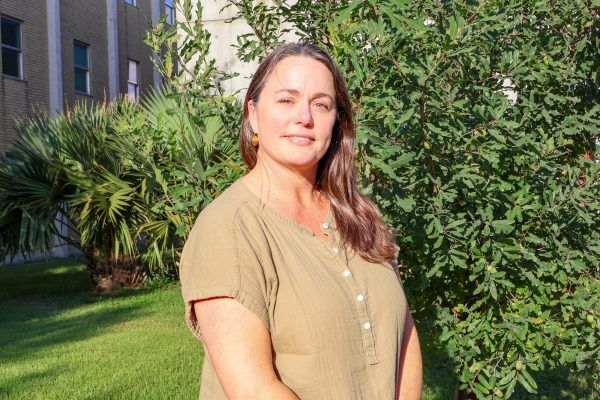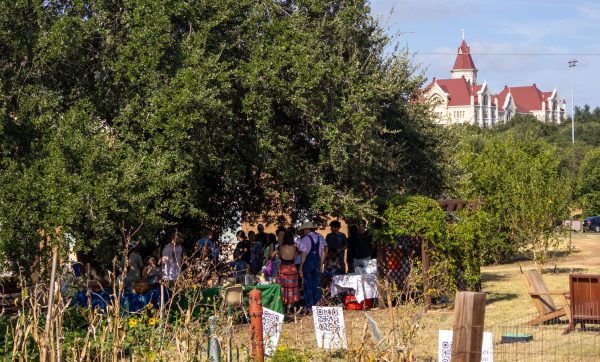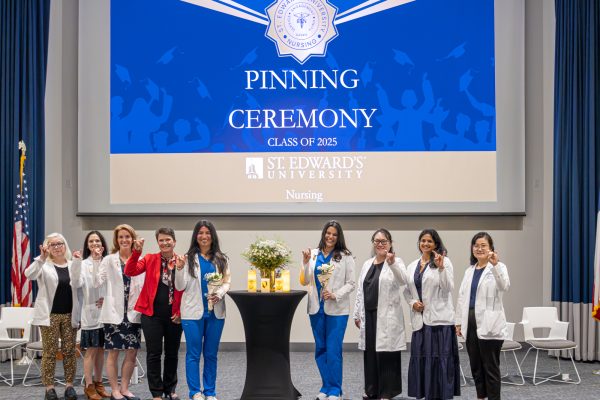Hail & Farewell: New College adult-learning program being phased out
“Ave atque Vale” is Latin for “Hail and Farewell,” which is the title of a eulogy written by the ancient Roman poet Gaius Valerius Catullus in honor of his late brother.
English professor Ramsey Fowler has the script printed underneath a group photo proudly laminated and displayed on the side of a filing cabinet at the entrance to his office on the third floor of Doyle Hall.
“Those who would be most identified with the history of New College, and for that matter, shaping its character, retired in 2015,” Fowler said, looking over to the photo of the colleagues he’s gotten to know since 1999.
Fowler is one of 16 educators who will pack up their momentos and textbooks this summer, as he is heading into retirement after 19 years at St. Edward’s University with the New College Program.
In serving as Director of the Office of Adult and Continuing Studies, Fowler has helped redefine undergraduate courses for non-traditional college students who are returning to complete the university to earn their undergraduate degree.
Since 1974, the university has accommodated these students by offering night, weekend and online courses.
By the Fall of 2021, Fowler explains this New College program will be phased out, and students with remaining credits will likely have to enroll in day courses or in independent study courses.
“It was intended to have flexibilities for students,” Fowler said in reference to the New College undergraduate program. “Adults sometimes have lives outside the university that are very complicated, and ones they have to manage while going to school.”
The average age of a New College student about 36, and several of these students are seeking to complete their degree for job security, promotion and to better provide for their families. Fowler also said that grandparents have returned to school in hopes of being a role model for their grandchildren.
Some college credit is available through a professional portfolio showcasing learning and growth through job experiences. This program has also allowed the university to serve as a well-regarded source for military veterans to earn a quality education.
There remains less than 200 students in the program who are working with four advisors to stay on track with the program’s expiration in three years.
The program has a less intensive course load that doesn’t focus on Cultural Foundations classes, but does include capstone.
One of the program’s faculty members who will also be retiring this year is philosophy professor Danney Ursery, who has spent decades with the program since arriving to campus in 1986, and was one of the first professors to teach online courses in the 1990s.
When asked to give advice to current students, the former New College professor Ursery said, “The better students seem to always get to know the faculty, and not just know them as scholars, but as human-beings.”
With only a few weeks left in the semester, those who are retiring are giving their final lectures and looking to the start of a new chapter.
At a ceremony honoring the retirees on April 17, SEU President George E. Martin said, “Memory changes from time to time. I’m sure some of those who are retiring today could talk about all the Brothers that were here when they started. And although a lot of them are not here anymore in the flesh, their memory is here, their ambition is here and Holy Cross is here.”
“The people who are retiring have been very instrumental to preserving that mission,” Martin said. “They’ve been our mentors and our models… We are deeply indebted to you for teaching us so well.”


